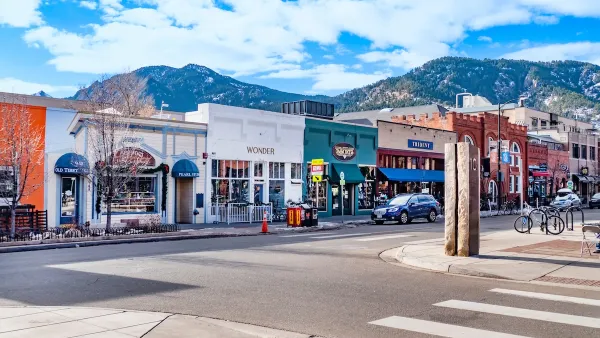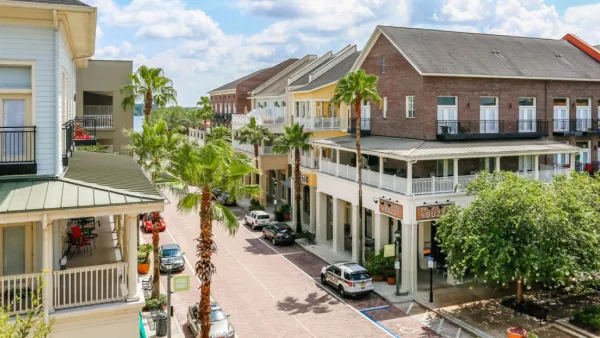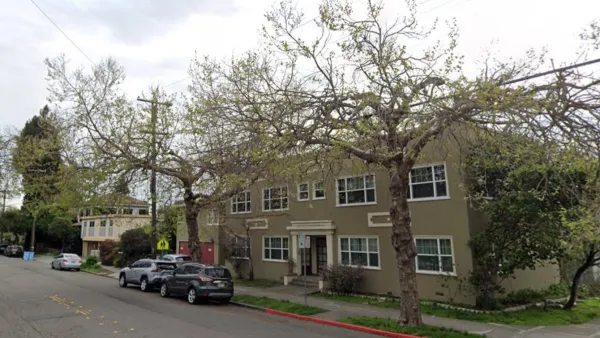The chief minister of the Indian state of Maharashtra (home to Mumbai) is pushing to rationalize the region's density controls, which had been prone to abuse by developers. Some fear the controls will result in more homogenous designs.
Until recently in Mumbai, "[a]n ambiguous set of development control regulations allowed policy makers to grant additional square footage, or a higher floor-area ratio (FAR), for architectural elements such as balconies and flower beds," writes Aparna Piramal Raje. "Developers misused this provision to construct as much as 10 times more than their allotted square footage in some cases, according to Abhisheck Lodha, managing director of real estate developer Lodha group."
However, Prithviraj Chavan, the chief minister of the state of Maharashtra (home to Mumbai), has proposed new policies that would "improve the rule of law in real estate development," by rationalizing FAR regulations.
“A decision was made that definitely hurt all developers – including us in the short term – but in the long term has made this city’s planning permission process less opaque and hopefully at some point or the other will make it faster,” said Abhisheck Lodha, managing director of real estate developer Lodha group.
"Other developers such as Ashutosh Limaye, head of research at global realtor Jones Lang LaSalle’s India office, are more guarded, noting that the change in regulations has had unanticipated negative consequences, making buildings more formulaic," adds Raje.
“I love features such as flower beds, architectural projections, voids, ducts, a play of solid versus voids,” Limaye says. “Because the provisions were grossly misused, the government came down heavily on them and stopped them. But what it has done is made the elevations very dull now. The projects that got approved under the newer norms are like matchboxes.”
FULL STORY: India’s cities set to benefit from urban planning controls

Planetizen Federal Action Tracker
A weekly monitor of how Trump’s orders and actions are impacting planners and planning in America.

Maui's Vacation Rental Debate Turns Ugly
Verbal attacks, misinformation campaigns and fistfights plague a high-stakes debate to convert thousands of vacation rentals into long-term housing.

Restaurant Patios Were a Pandemic Win — Why Were They so Hard to Keep?
Social distancing requirements and changes in travel patterns prompted cities to pilot new uses for street and sidewalk space. Then it got complicated.

In California Battle of Housing vs. Environment, Housing Just Won
A new state law significantly limits the power of CEQA, an environmental review law that served as a powerful tool for blocking new development.

Boulder Eliminates Parking Minimums Citywide
Officials estimate the cost of building a single underground parking space at up to $100,000.

Orange County, Florida Adopts Largest US “Sprawl Repair” Code
The ‘Orange Code’ seeks to rectify decades of sprawl-inducing, car-oriented development.
Urban Design for Planners 1: Software Tools
This six-course series explores essential urban design concepts using open source software and equips planners with the tools they need to participate fully in the urban design process.
Planning for Universal Design
Learn the tools for implementing Universal Design in planning regulations.
Heyer Gruel & Associates PA
JM Goldson LLC
Custer County Colorado
City of Camden Redevelopment Agency
City of Astoria
Transportation Research & Education Center (TREC) at Portland State University
Jefferson Parish Government
Camden Redevelopment Agency
City of Claremont





























